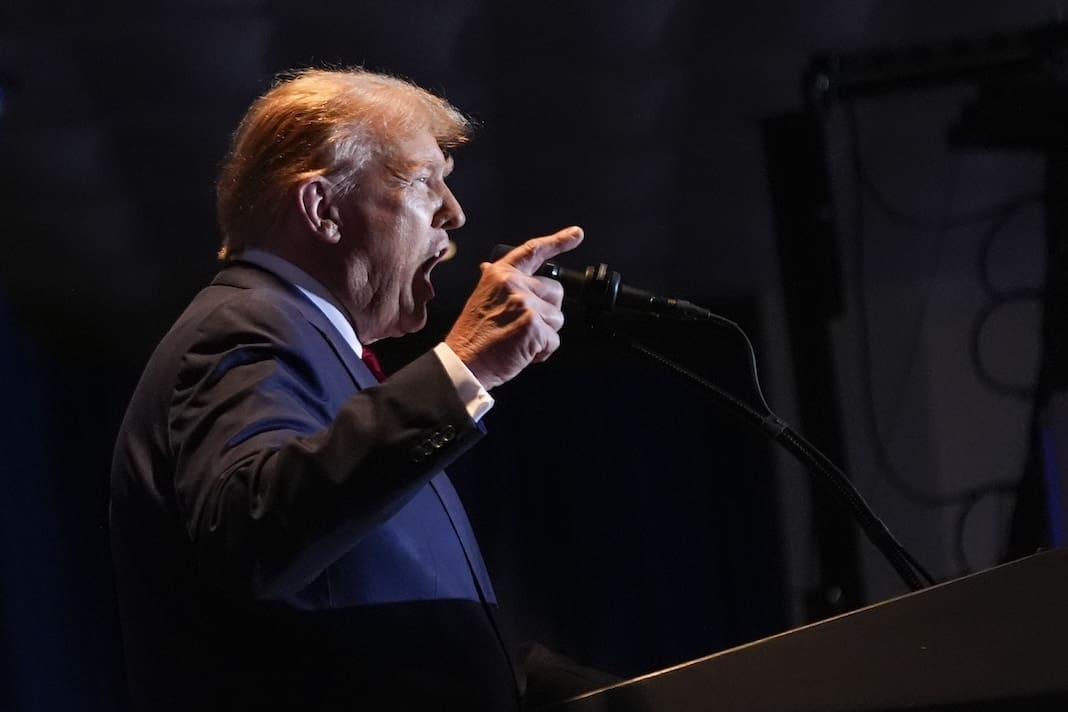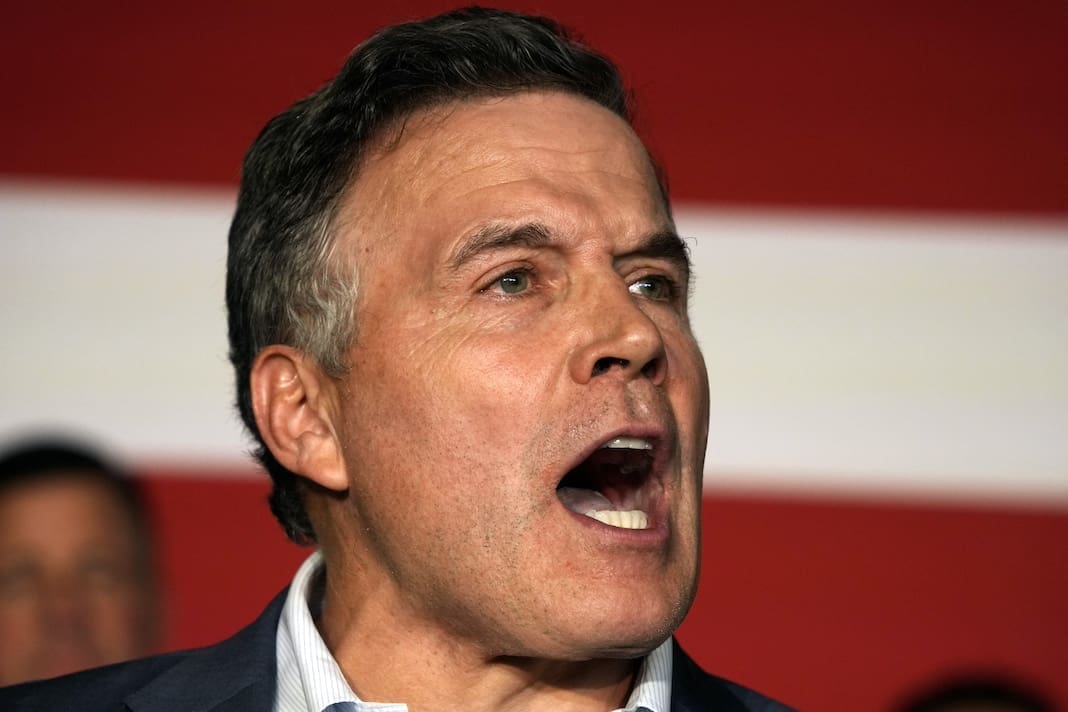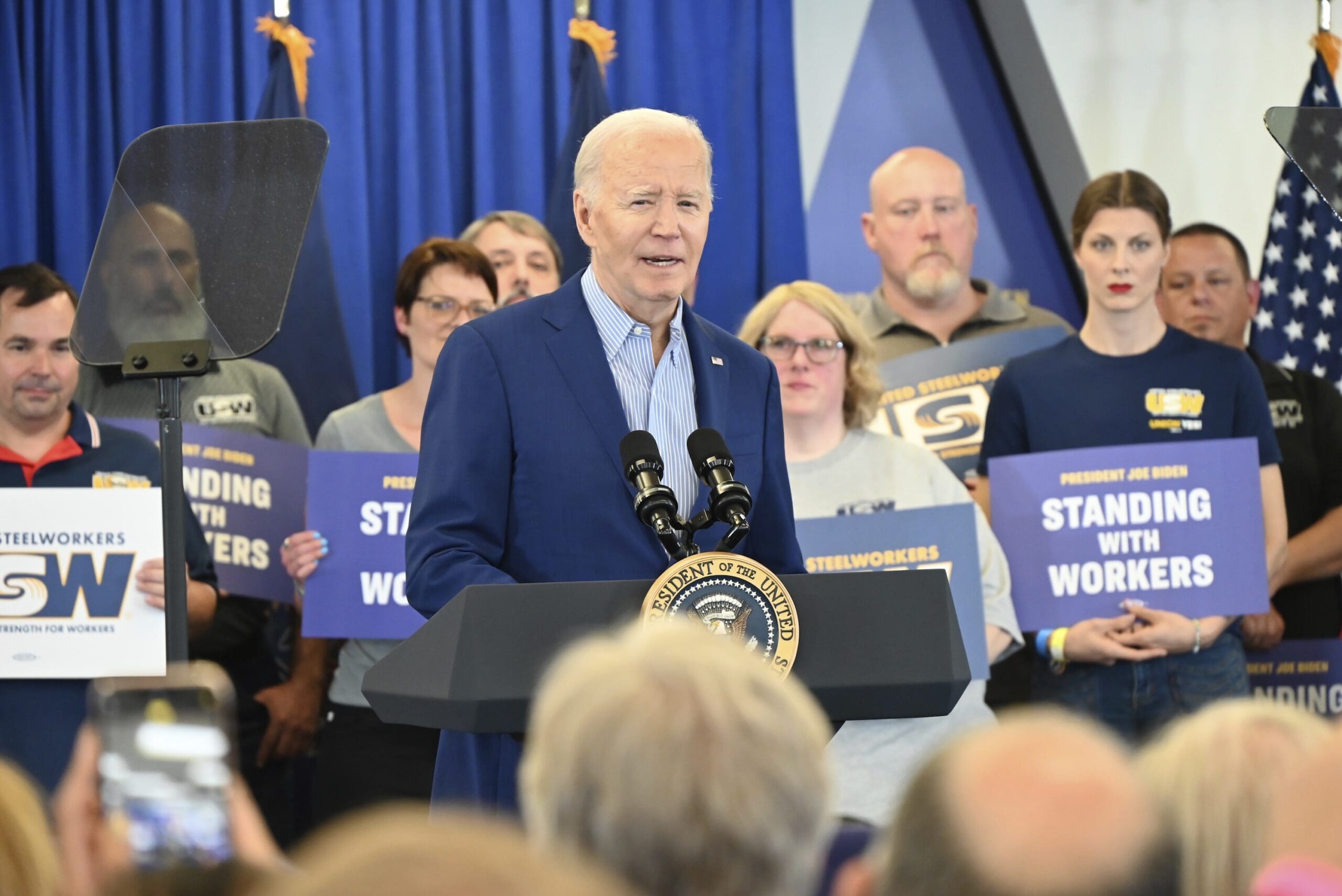Pennsylvania GOP Senate candidate Dave McCormick wants to ‘roll back’ cost-saving laws
The Biden economic policies McCormick wants to scrap are boosting Pennsylvania’s infrastructure and spurring drug companies to negotiate to lower costs for older Americans.
Republican Pennsylvania Senate hopeful Dave McCormick said on Tuesday that he opposes President Joe Biden’s infrastructure and health care laws and wants to see them rolled back. The laws he opposes are already helping to lower costs and improve health and safety for Pennsylvanians.
McCormick, a millionaire former hedge fund executive who reportedly still lived in Connecticut as recently as this summer, announced in September that he will seek his party’s nomination to challenge incumbent Democratic Sen. Bob Casey in 2024. McCormick ran for Pennsylvania’s other Senate seat in 2022 but lost narrowly in the Republican primary to television personality Mehmet Oz.
The Cook Political Report rates the race competitive and leaning Democratic.
In an appearance on right-wing host John Fredericks’ “Outside the Beltway” program, first flagged by the progressive super PAC American Bridge 21st Century, McCormick was asked about spending cuts. (Disclosure: The American Independent Foundation is a partner organization of American Bridge.)
McCormick responded by promising to scrap much or all of Biden’s 2022 Inflation Reduction Act and implied he would do the same with Biden’s bipartisan 2021 infrastructure investment package:
What happened under Biden, with these huge, enormous pieces of legislation, the Inflation Reduction Act, which, there’s never been a more misnamed piece of legislation in history, which is pork belly corporate welfare. We’ve got to roll that back. That spending, if you look at the projections, John, that spending is putting our kids, putting our fiscal situation at dramatic risk. So the big Biden legislation was a terrible mistake. The Green New Bill, all these things were disasters. And so we’ve got to roll that back. Discretionary spending has to be addressed and we have to do it forcefully. … That would be where I’d start.
A campaign spokesperson did not immediately respond to an American Independent Foundation inquiry about what portions of the bills McCormick would cut or repeal.
Biden has not signed a “Green New Bill,” nor has Congress approved the proposed Green New Deal package of climate and social investments.
The 2021 Infrastructure Investment and Jobs Act included significant investments in electric vehicle technology and funds to improve road, bridge, water system, and broadband infrastructure.
The impacts of those investments are evident across the Keystone State. The Biden administration has announced millions of dollars for programs to help Pennsylvania families afford their heating and air conditioning bills, hundreds of millions of dollars to improve the safety of the commonwealth’s bridges, grants to improve water infrastructure in Philadelphia and Berks County, and funds to maintain dams in York and Carbon counties.
Pennsylvania was one of the first states to expand the availability of charging ports for electric vehicles using funds in the law. The act also helped speed up repairs on the Fern Hollow Bridge in Pittsburgh, which collapsed in January 2022.
The Inflation Reduction Act is helping to lower consumer costs for energy and health care.
The law requires that pharmaceutical companies negotiate with the federal government to lower prescription drug prices for Medicare recipients. On Oct. 3, the manufacturers of 10 costly medications agreed to comply and begin those discussions.
Its $25-a-month cap on the out-of-pocket cost of insulin for those on Medicare spurred drug companies to slash prices for all consumers.
Other provisions in the law provide consumers and businesses with thousands of dollars in rebates and tax credits to weatherize their home, buy an electric car, and install an energy-efficient heat pump.
Leaders at an Episcopal congregation in Lewisburg told the American Independent Foundation in September that they were able to afford to install solar panels on their church’s roof thanks to the law and that doing so helped solve their budget shortfall.
Contrary to McCormick’s claims, the Inflation Reduction Act’s investments were not only fully paid for through tax revenue from large corporations and those earning more than $400,000 annually, but they are also expected to reduce the federal budget deficit by hundreds of billions of dollars over a decade.
Published with permission of The American Independent Foundation.




